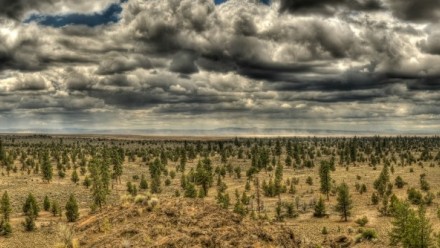An ethical gap? Scientists and climate adaptation
The uncertainties related to climate science present some unique challenges for policymakers and researchers alike. Drawing on lessons from the health care domain, where there are established mechanisms and processes in place for managing risk, Justine Lacey, Mark Howden and Chris Cvitanovic look at ways researchers can proactively support decision-makers. Could a similar ethics system to the one used by frontline medical professionals be implemented by climate scientists to enhance decision-making?
Given the significant and irreversible impacts of climate change on communities and the environment, there is increasing focus on how to best support decision-makers adapting to climate change. To date, much of this focus has been directed at assessing how decision-makers themselves navigate and manage risk and uncertainty in deciding to what extent they should adapt their own businesses and practices. We argue, however, that scientific researchers also have a key role to play in supporting these adaptation decisions.
Increasingly it is acknowledged that the communication of timely, useable and relevant research findings to those who will apply them is critical. However, it is equally important to identify and guard against the implicit risks that can be created in the communication of research findings. For example in the context of climate change, through researchers failing to outline the full list of adaptation options available to decision-makers, publicising their research findings as accepted and uncontroversial inputs into decision-making processes, or by not declaring other conflicts of interest. Such practices may be implicit or even exacerbated by our institutional structures but they have the potential to increase the risk exposure of decision-makers, with downstream impacts to broader societal well-being. However, such risks are rarely, if ever, examined in the context of adaptation decision-making.
What responsibilities do adaptation researchers have to decision-makers?
One way of increasing clarity about the existence and management of such risks is through distinguishing between the research and operational aspects of adaptation research, and how this interface is (or should be) disclosed. There is good reason to examine not only the uncertainties related to climate science itself, but also for researchers to be transparent and accountable for what kind of science is being undertaken and whether it is suitable for operational decision-making, how and by whom it is funded, and how it is communicated to decision-makers. Clarifying the distinction between the research and operational aspects of adaptation research can help to manage potential and unintended risks to adaptation decision-makers and provide clear guidance on ethical adaptation research. We believe a useful analogy can be drawn with the communication and implementation of findings in the health care domain where this distinction has been made operational.
Lacey, J, Howden, SM, Cvitanovicb, C, Dowd, AM (2015), Informed adaptation: Ethical considerations for adaptation researchers and decision-makers, Global Environmental Change, Vol 32, P200-210.











